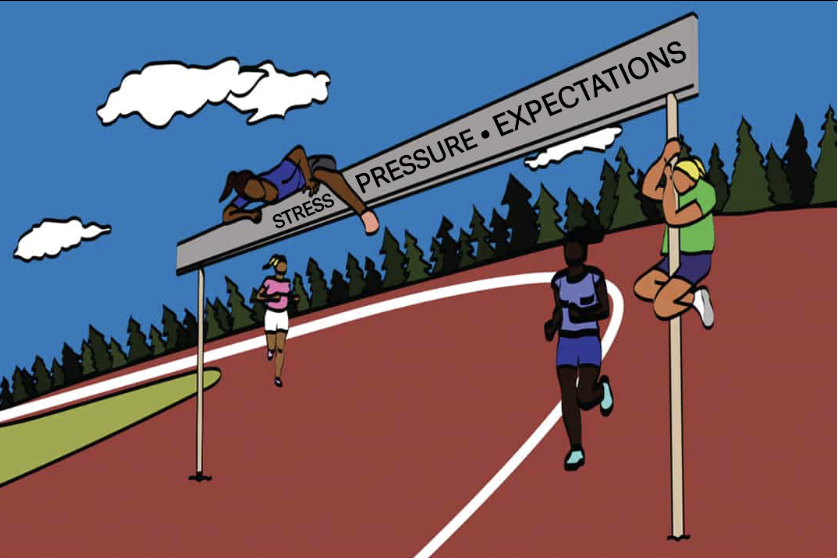Now that our winter sports season has ended and spring sports have begun, I thought there was no better time to have a sit-down conversation with our Athletic Director, Gus Ornstein, to discuss how mental health affects students, especially student-athletes. Not only is Gus the Athletic Director, but he is also an advisor. I am one of his advisees, and our advisory gets to see two sides of him. His Athletic Director side which includes running around to Horace Mann for league meetings, getting helmets for boys lacrosse, and trying to figure out where tennis will practice next, but we also get to see advisor Gus who can understand the pressure we students are under. I found time in his busy schedule to talk over a series of questions regarding his role as Athletic Director, the roles of coaches in our lives, spreading awareness about mental health in sports, and creating safe environments for our students.
The most rewarding part of his job? Gus replied, “I love watching kids compete and having fun doing what they love. There is no better part of my day than going from gym to gym or outside onto the fields after a long day to watch some practices and games. The fact that I can provide an outlet for that is my biggest reward.”
Ornstein said, “ Coaches should always prioritize a safe and healthy environment to be able to get what they want done. If a student-athlete struggles at school, for many of them, after-school or weekend practices are a getaway. They can only feel that escape if they feel comfortable during their games and practices.” Gus elaborated further: Athletics have significantly changed over the last few years. For example, many well-known athletes, such as Simone Biles and others, have been sharing their experiences, which have turned a page for coaches and how they view what their students are going through. This has also given many coaches the courage to step out and share the stigma around mental health in toxic sporting environments.”
Gus explained that there has always been a stigma around athletes struggling with mental health because it may show that they’re “weak” or do not have time to focus on themselves because of how busy their training schedules are, especially those athletes still in school balancing school work, grades, and their sports teams. More and more major organizations, such as the NCAA, have been putting out statements, sharing studies, and releasing articles about how college athletes balance academics, the pressure of keeping their scholarships and being “good enough.”
Gus stated, “It is important for coaches to be aware of stress and challenges kids go through every day leading up to when they step onto the field or court.” Coaches should have boundaries not to overstep using their voice. You never want to be the coach that pushes a student over their limit.
Gus said that occasionally people do not understand how toxic some environments can be and the difference between sports helping an athlete vs hurting them more. Gus says, “Sometimes the coach is the stem of an issue they may be going through.” There may be some kind of disconnect or mismatch. Gus talked about one of the things he can do as an Athletic Director and coach getting to the root of an athlete’s struggle and helping them through it using better communication strategies on both ends.
He wants people to know that you don’t have to play a sport for Fieldston to rely on him as an Athletic Director or be his advisee, anyone can reach out to him about whatever is bothering them. Gus emphasized how important it is for people to understand themselves and that they should never be ashamed of what they’re going through, and they will never be judged for what their minds and body are telling them. “There is a large stigma around that, a stigma and culture around student-athletes coming forward and feeling like they will be judged or mistreated by their coaches or teachers. We want to make sure that it not happening here and that kids feel comfortable expressing their feelings.”
Gus hopes that all the students at Fieldston, even if they’re not athletes, see that Fieldston has unlimited resources and safe zones. No one should ever feel like their struggles are not seen and must go through whatever they’re experiencing alone. He hopes that he can do whatever it takes to continue to make Fieldston a comfortable place for his athletes but also for the students, and he hopes that he can leave that legacy for whoever will take over next (even though he is not going anywhere)!






